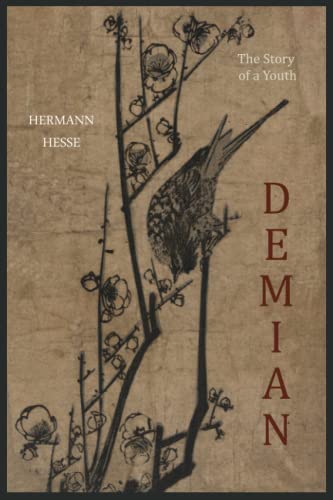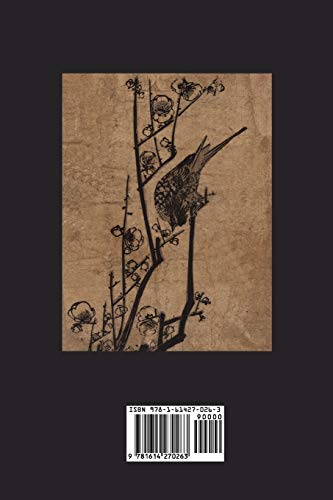Welcome, fellow bookworms, to my zany review of “Demian”! Brace yourselves for a wild ride into the world of spiritual awakening, self-discovery, and coming-of-age trials where life’s philosophical debates will make you question everything, including your choice of cereal this morning. Grab your favorite reading snack, and let’s explore what makes “Demian” both puzzling and soul-stirring.
In a Nutshell
“Demian” by Hermann Hesse is a novel that sticks in your mind like a catchy tune you can’t shake. Written in 1919, this philosophical coming-of-age story has a side of spiritual awakening. The book falls into a genre mix of Bildungsroman and modernist fiction.
The main character, Emil Sinclair, experiences an inner journey that many teenagers can relate to. He navigates life between two worlds: a world of light, innocence, and simplicity; and a darker realm of mystery and complexity. Think of it as a magical quest minus the dragons.
Themes of self-discovery, duality, and personal growth are cleverly woven through the narrative. It’s like going to therapy, but cheaper and with fewer awkward pauses. Hesse explores the struggle between the inner self and societal norms, leaving readers questioning their own beliefs.
Embarking on the Journey of Spiritual Awakening and Self-Discovery
Let’s talk about that mysterious and often life-changing journey called spiritual awakening. This process, much like a hiker scaling a seemingly insurmountable peak, involves self-discovery at its core. Hermann Hesse’s Demian offers an insightful narrative on this journey. The book weaves a tale of a young man, Sinclair, as he explores the path to understanding himself in a world of conflicting beliefs and emotions. I once read this during a holiday, and it made me question if the choices I made (like eating that odd green soup) were really mine or just the universe having a laugh.
Sinclair’s struggles highlight what many of us go through. There’s a point in Demian when you feel like you’re staring at a reflection in a carnival mirror. You see yourself, but everything is a bit skewed. It’s not just about self-awareness but also about embracing the contradictions that make us who we are. Hesse’s work nudges us to question our identity, much like finding out that the best jokes are the ones you had thought of but forgot to write down.
On the flip side, Demian can sometimes feel like deciphering a cryptic crossword after a long day at work. It demands patience and introspection, and you might need to keep a dictionary handy. Nonetheless, the profound insights you gain from it are rewarding.
Stay tuned, as the next section will unravel the mystifying world of Symbolism and its significance in our lives, adding another layer to our exploration.
The Power of Symbolism in Hermann Hesse’s Demian
Ah, symbolism! It’s like trying to decode a message from your secret crush. If you’ve ever read Demian by Hermann Hesse, you know that it’s full of symbols that tickle your brain. I remember reading it and thinking, “What on Earth is going on?” But then, it clicked! The book is a treasure trove of hidden meanings.
In Demian, symbolism is as crucial as a nap on a Sunday afternoon. Hesse uses it to explore themes of duality and self-discovery. Take the bird breaking out of its egg – a classic example! It’s about breaking free from societal norms. It’s like when I tried to wear bell-bottoms in a skinny-jeans world. The egg represents conformity, and the bird is that daring self trying to emerge.
Another striking symbol is the mark of Cain, which resonates throughout the book. Instead of being a curse, it becomes a badge of individuality. It’s like when you had that atrocious haircut in fifth grade – embarrassing, yet it made you, you! This symbol pushes the protagonist, Sinclair, to find his unique path, making readers ponder their own individuality.
Symbolism in Demian isn’t just for a dramatic flair. It serves as a guide for readers to unravel deeper truths about life and identity. It’s as if Hesse hands us a magnifying glass and says, “Go on, see what more lies beneath!” Reading Demian feels like an intriguing treasure hunt where each found clue brings a rush of excitement.
And there you have it, folks! Next up, we jump into the rollercoaster of coming-of-age experiences that make Demian a timeless classic. Hold onto your hats!
Exploring the Coming-of-Age Journey in Literature
Ah, the coming-of-age tale! It’s like finding your first gray hair and realizing you’ve been drinking decaf all along by mistake. In Hermann Hesse’s ‘Demian’, the protagonist Emil Sinclair experiences a journey that many of us can relate to, whether we were awkward teens or rebellious adults, trying to figure out if one-sock fashion was going to be a thing.
Demian is less about the first crushes and more about the self-realization we all undergo. Picture this: Sinclair is caught in a tug-of-war between the everyday world and a mysterious realm of internal awakening. It’s similar to when I discovered peanut butter on burgers—sounds weird but changes your perspective forever.
Throughout the book, Sinclair’s experiences mirror our own youthful trials, like deciding if telling the truth is a good idea or if it’s better to improvise your way through life’s pop quizzes. The people and environments Sinclair encounters become echoes of our own high school cliques and social dynamics, an odyssey filled with lessons and discoveries.
But, what really stands apart in Demian is how Sinclair doesn’t just settle for the ordinary; he strives for deeper truths and pushes boundaries, much like the time I tried karaoke for the first time, convinced I could sing like Freddie Mercury. Spoiler: I can’t. This element of the coming-of-age journey is what gets our introspective gears grinding!
In the next section, we’ll mix it up a bit and discuss life challenges and philosophical debates that keep us awake at night, like the mysteries of missing socks and unanswered texts.
Life Challenges and Philosophical Debates in ‘Demian’
Growing up, I often found myself contemplating life’s big questions while munching on a PB&J sandwich. Herman Hesse’s book, Demian, does that too, except instead of sandwiches, you get a hearty serving of existential crisis. This is a story where life challenges and philosophical debates take the front seat. The text is filled with situations that encourage readers to ask questions about destiny, morality, and the universe.
Through Emil Sinclair, the author tackles challenges that many of us face. Sinclair’s struggles, like finding identity and dealing with inner conflicts, feel quite familiar. I remember my middle school days when wearing socks with sandals felt like a bold fashion choice. Similarly, Sinclair questions societal norms and dares to be different.
Where this book shines is in its philosophical musings. It weaves complex debates into Sinclair’s journey, questioning good vs. evil and individualism vs. collectivism. Sinclair’s bond with the enigmatic Max Demian serves as a catalyst. Demian often challenges Sinclair to think deeper, pushing conversations that make your brain twist like a pretzel.
A memorable debate in the book centers around the concept of destiny and whether we have control over our paths. My personal experience? Trying to control my destiny once led me to a disastrous haircut in ninth grade. Much like Sinclair, we must confront our predetermined paths and make choices.
Ultimately, if you enjoy books that tickle your brain cells and ponder life’s mysteries, Demian is worth a read. Just don’t expect it to give you all the answers. Do I recommend it? Absolutely, but keep a snack handy for those deep thoughts.
Conclusion
After my whimsical journey through the pages of ‘Demian,’ I can genuinely say this book is a gem for those seeking a philosophical coming-of-age tale. Hermann Hesse takes readers on a ride filled with spiritual awakenings and self-discoveries, all wrapped in stunning symbolism. Of course, ‘Demian’ isn’t without its quirks. Some might find the introspective passages too dense or slow. But if you love a good debate on life and its challenges, this book won’t disappoint. So grab a cozy chair, a cup of tea, and let Hesse’s prose sweep you into a world of thought-provoking exploration. This wraps up my review, folks! Happy reading!



